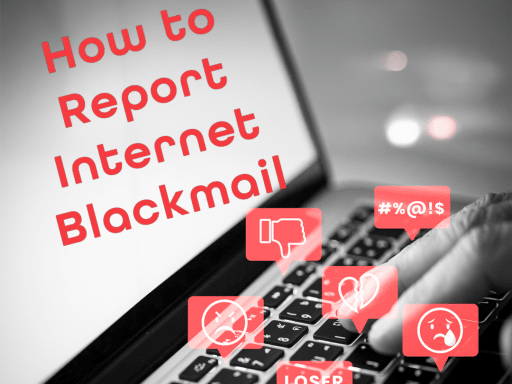Did you know that blackmail cases on Facebook have skyrocketed in 2023 and 2024?(1) It’s a growing problem, but the good news is that you can protect yourself. Prevention is always better than dealing with the aftermath. If you’re already facing threats, don’t panic we have resources for victims of Facebook blackmail available on our page What to Do If Blackmailed on Facebook.
Understanding Facebook Blackmail Tactics for Prevention.
Facebook blackmail often happens when professional cyber criminals exploit personal vulnerabilities to extort money. The most common of these scams are Cyber Sextortion, Sensitive Information Blackmail, and Romance Scams. Below, we’ll explore each of these forms of extortion in greater detail.
Sextortion
Facebook sextortion accounted for a staggering 89% of the Facebook blackmail cases handled by Digital Forensics Corp. in 2024(2). This cybercrime occurs when someone demands money in exchange for not sharing intimate images or videos.
Why is Facebook such a target? Its massive user base and the ease of accessing personal details through profiles and friend lists make it a goldmine for scammers. They often create fake profiles to connect with victims, build trust, and then trick them into sharing compromising content. Once they have it, they use targeted threats of exposure to force victims into paying up.
Sensitive Information Blackmail
Unlike sextortion, sensitive information blackmail often starts with a malicious link or malware sent through Facebook Messenger. Once the victim’s sensitive data is stolen, scammers use it to make threats and demand compliance. It’s sneaky, its effective, and it is easy to deploy.
Romance Scams
While romance scams are not classified as a form of online blackmail, they have a tendency to intertwine. In a romance scam, a cybercriminal will leverage a catfish profile to trick and manipulate a victim into giving them money in the form of “gifts”. As an insurance policy for continued payment, cybercriminals will often pull either sensitive information or sexual content that can be used later.

Has Meta Made Any Attempt to Prevent Blackmail on Facebook?
While Meta introduced tools on Instagram and Facebook that blur images recognized as containing nudity and warning users of the content’s intimate nature (3), they haven’t rolled out protections that completely prevent NCII sharing. This means that sextortion and targeted leaks can still happen on these platforms leaving the responsibility to its users, both young and old, to take precautions to prevent the crime from happening.
Recognizing the Signs of Blackmail Attempts on Facebook
Scammers are clever, there are warning signs you can watch for. Below are a few of the big ones:
Unsolicited Friend Requests
Be cautious about accepting friend requests from people you don’t know. Look for red flags like incomplete profiles, stolen photos, or too-good-to-be-true stories. Use free reverse image search tools to check if a profile picture has been used elsewhere.
Suspicious Messages
If a message feels off, trust your gut. Scammers often start with casual chats but quickly escalate to intimate topics or requests for sensitive information. Don’t let your guard down.
Other Preventative Measures You Should Consider
Here are some practical steps to prevent Facebook blackmail and make your experience safer:
- Optimize Your Privacy Settings: Limit who can see your profile, posts, and friend list. Keep things locked down.
- Avoid Sharing Sensitive Info: Think twice before sharing personal or financial details, even with people you trust.
- Regular Account Monitoring: Keep an eye on your account activity and report anything suspicious to Facebook Admin.
For additional help securing your Facebook account, we suggest reading some of our additional resources on cybersecurity best practices available here.
If You Suspect You’ve Fallen For a Scam
While these tactics for preventing Facebook blackmail are effective, they are not impregnable. If you think you’ve been targeted or are already receiving threats, don’t hesitate to reach out for online blackmail help. Digital Forensics Corp. is here to support victims of blackmail, sextortion, romance scams, and other online extortion tactics. Contact our Blackmail Helpline to speak with a live cybersecurity expert who can guide you through the next steps.
Taking action quickly can make all the difference. Stay informed, stay vigilant, and don’t let scammers win!
Sources:
- https://telehealth.org/global-social-media-financial-extortion-crisis-including-sextortion-with-teenagers-on-instagram/
- https://transparency.meta.com/id-id/policies/community-standards/adult-nudity-sexual-activity/
DISCLAIMER: THIS POST IS FOR INFORMATIONAL PURPOSES ONLY AND IS NOT TO BE CONSIDERED LEGAL ADVICE ON ANY SUBJECT MATTER. DIGITAL FORENSICS CORP. IS NOT A LAWFIRM AND DOES NOT PROVIDE LEGAL ADVICE OR SERVICES. By viewing posts, the reader understands there is no attorney-client relationship, the post should not be used as a substitute for legal advice from a licensed professional attorney, and readers are urged to consult their own legal counsel on any specific legal questions concerning a specific situation.
The information presented in this article is based on sources that are not readily available to the public and may be subject to restrictions or confidentiality. It is intended for informational purposes only.






